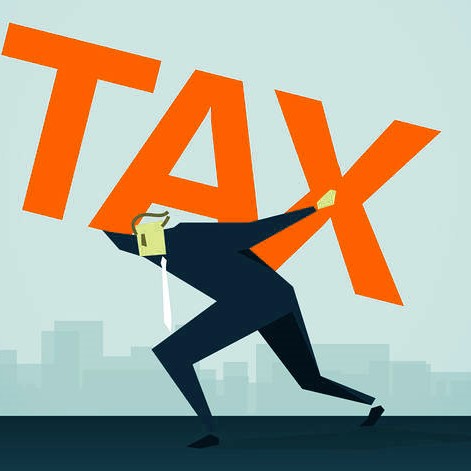click to dowload our latest edition
CLICK HERE TO SUBSCRIBE TO OUR NEWSLETTER


Published
4 years agoon
By
adminANTHONY CHAIT
After 20 years of many South Africans, who spend most of their year working abroad, not having to pay any tax, they are now obliged to pay tax if they earn more than R1.25 million a year.
The exemption is now gone, much to the dismay of many. Buoyed by social media and the advent of the hashtag, the #2020ExpatTax campaign has caused considerable anxiety amongst South Africans working abroad.
Mboweni did his best to soften the blow somewhat during his speech last week. “Government will increase the cap on the exemption of foreign remuneration earned by South African tax residents [from R1 million] to R1.25 million per year from 1 March 2020,” he said.
He went on to cool heightened temperatures by announcing a far-reaching exchange-control measure which abolished the concept of financial emigration. The stringent and costly financial emigration process weighed heavily on emigrants for many years. Anyone who was emigrating would have compulsory investments in Eskom stock, blocked assets, and restricted bank accounts.
“We don’t want to force people to cut their ties with South Africa,” he said. Residents and non-residents (who formerly lived in this country) will be treated equally in the eyes of the South African Reserve Bank (SARB). This move is unprecedented in the history of our capital-flow laws, and is expected to be fully implemented in March 2021. Exchange-control regulations are being re-written to accommodate these changes.
While this is a relief for many, the question remains why the expat tax was implemented.
At the turn of the century in the years 1999 and 2000, the government was approached by the construction industry for some relief. Just five years into our democracy, Africa was opening up to us as a continent and economic opportunities abounded. With their order books empty, most of our large construction companies were looking for work further afield than within our own borders. They had the architects, engineers, skilled workers, and artisans necessary to tender for projects on the African continent. Schools, hospitals, dams, roads, and modern airports were being sought, and we had the ability to make them happen.
As a lobby group, the construction sector pleaded for the assistance of government as this would create significant further employment for South Africans. Then President Thabo Mbeki was enthusiastic about the initiatives of an organisation known as New Partnership for Africa’s Development.
It was decided to grant South Africans an exemption from income tax on their salaries provided they met simple criteria to do with the number of days they spent outside South Africa.
If they were out of the country for 60 consecutive days and then another 183 days – not necessarily all together – during a 12-month period, they were exempt from tax.
The belief was that there would be a greater incentive for people to work in rural and undeveloped areas, far from home comforts and family, if they didn’t have to pay pay-as-you-earn (PAYE) tax.
When this became part of our tax law, it was applied to any form of employment by South Africans abroad irrespective of the field or industry. To enjoy the exemption, other than the required number of days spent abroad, there were no other strings attached. It didn’t matter whether you paid tax in the country you were working in or not.
Dubai became a popular destination for South Africans working in the United Arab Emirates, where locally, their income is completely tax-free. Pilots flying for foreign airlines were among those whose occupations enjoyed this tax exemption. They would manage their rosters and schedules so they spent the required number of days out of the country.
South African actors and dancers have starred in a number of musicals which were produced here and then toured the world, all with the benefit of tax-exempt wages and salaries.
The South African government, looking to manage its budget deficit, saw this as an obvious way to bring in additional revenue. In 2018, it decided to withdraw an exemption completely that was enjoyed for nearly 20 years.
There was a huge outcry after the announcement. Various representations were made to government urging reconsideration of this decision.
The government was sympathetic, ruling that the exemption would remain only for those earning less than a maximum of R1 million. For those earning more than that, the first R1 million would be tax free.
This change in tax law was delayed when first mooted in 2018, and scheduled to be implemented only this week.
Mboweni then softened the blow a bit by increasing the tax-free portion by a further quarter of a million rand. Effectively, R1.25 million of foreign earnings won’t be taxable.
Interlinked with this was Mboweni’s review of exchange-control restrictions. Many South African expats were duped into the belief – totally incorrect – that to avoid the impact of the withdrawal of the tax exemption, they had to emigrate financially.
This can be a costly exercise through the SARB. Many people were pushed into going this route by dodgy consultants.
So, how do South African expats who have made aliyah to Israel and relocated elsewhere overcome the new expat tax law which is now in force? This amendment will have an impact only on those who are still resident of South Africa for tax purposes. Most who have left should no longer be tax residents here. One needs to advise SARS that one is no longer a tax resident. Many have neglected to do so, and should now place this on record.
